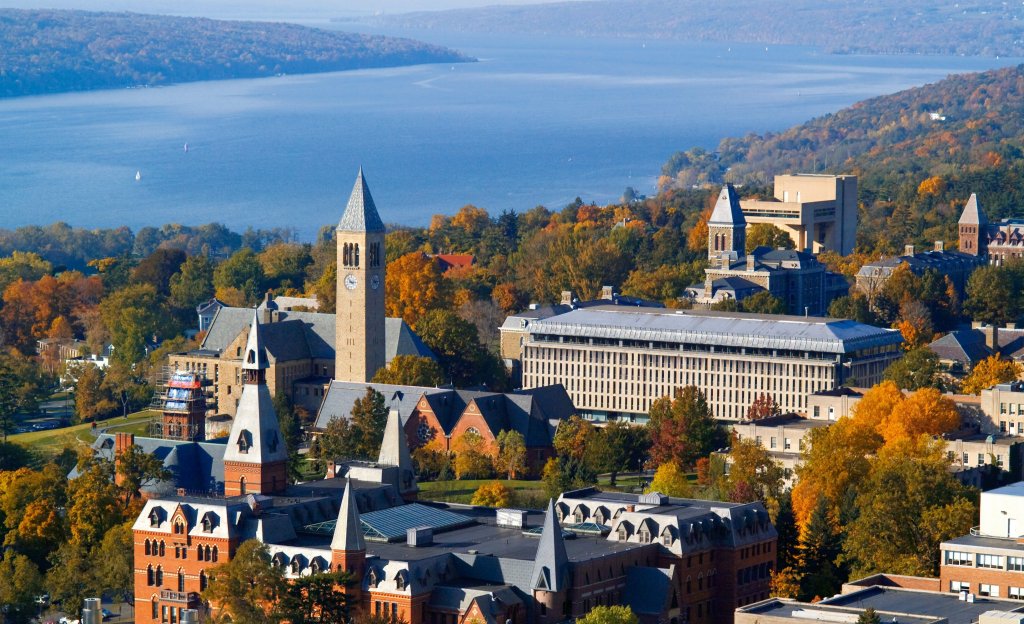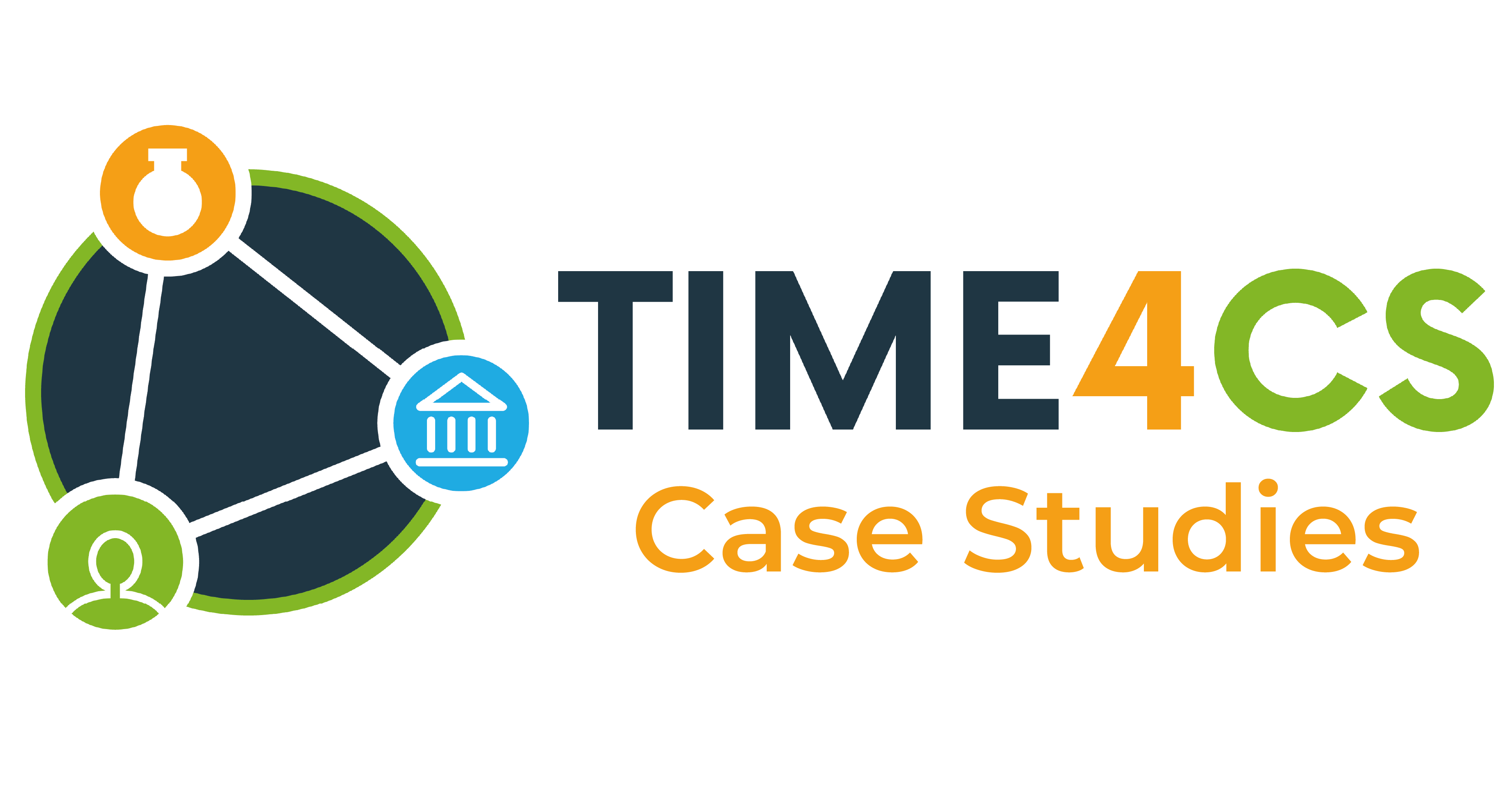
Founded in 1865, Cornell University is a private Ivy League university with a mission to “discover, preserve, and disseminate knowledge”. A federal land grant university with a private endowment, Cornell has six locations across the world. Its main campus in Ithaca, New York State, covers 2,300 acres of the Finger Lakes region, and is so extensive that students can go hiking without even leaving the university. It also has a graduate school of medical sciences in New York city, a base in Rome where students study art, architecture and urban planning, a centre for students to gain work experience in Washington DC, and a medical college at Education City in Doha, Qatar.
| Elements | Evidence for this |
| 1.1 Are there research projects using CS methodology? (Yes/ No) If yes, provide description of any tracked past and present projects employing CS, Crowdsourcing, Participatory-Action-Research or a Co-productive approach. For definition of citizen science, see ECSA characteristics of citizen science | Yes, many. There’s no comprehensive list that I know of. Many projects are based at the Cornell Lab of Ornithology (https://www.birds.cornell.edu/home/get-involved/). Others are connected to the Civic Ecology Lab (https://www.civicecology.org/). There are many people doing participatory action research projects, but I don’t know of them specifically. Some are based in the Dept. of Global Development, others may be accessed through the Einhorn Center for Community Engagement (https://oei.cornell.edu/grant/engaged-research-grants/). There are individual projects like Stall Catchers (https://www.stallcatchers.com/main#) and Lost Ladybug Project (http://www.lostladybug.org/). |
| 1.2 Do researchers and students belong to a CS network? (Yes/No) If yes, provide details of the different links with CS networks. A citizen science network can be formal (e.g. an association or organisation) or informal (a shared mailing list) | I’m sure some people belong to Citizen Science Association, especially from the Lab of Ornithology. I’m not aware of other memberships. |
| 1.3 Do researchers and students have established working collaborations with CS groups? (Yes/ No) If yes, state name of projects and type of collaboration with external CS groups or projects. External CS groups can be an existing organisations or ad-hoc nature observation club, or a group of people that are self-quantifying. It can also be a collaboration with an organisation that runs CS programmes such as Earthwatch. | Again, yes, I suspect there are many such working collaborations, but I don’t have a catalog of them. |
| 1.4 Do researchers and students participation in national or international CS projects? (Yes, national; Yes, international; Yes, both national and international; No CS collaborations yet) If yes, provide a brief description of past and present cases. In some countries there are no official networks, such as the UK, but informal networks can run and be active | Yes, many, especially because of Lab of Ornithology links. Also, some students individually probably participate in Zooniverse projects. |
| 2.1 Does the institution have training programmes on CS? (Yes, for students;Yes, for researchers; Yes, for citizen scientist; Yes, for different actors [state]; No, training programmes) If yes, provide a brief description of past and present training programmes | We do not have a particular “citizen science” training program. There are ad-hoc introductions (for example, a workshop on PAR recently through our Center for Social Sciences). Some courses may include citizen science among their topics (for example, Educ 2220, Designing and Facilitating Learning for Development; Comm/STS 4660, Public Communication of Science & Technology; Comm/STS 6660, Public Engagement with Science; Comm/STS 2850, Communication, Environment, Science, & Health). |
| 2.2 Does the institution provide CS activities in both formal and informal education? (Yes, formal; Yes, informal; Yes, as part of a research project without a link to education; Yes, a mix of formal and informal[state]; No, no CS activities are organised). If yes, provide a brief description of past and present training programmes | The Cornell Lab of Ornithology offers many citizen science projects, as does the Civic Ecology Lab. There are other individual projects, such as the Lost Ladybug Project (http://www.lostladybug.org/) and Stall Catchers (https://www.stallcatchers.com/main#). I believe all of these are informal education. I don’t know of any CS activities built into courses. |
| 2.3 Does the institution offer assistance for scientists and partners (recipients, stakeholders and groups of interest) regarding cooperative CS activities? (Yes, advice on participatory activities; Yes, courses and training; Yes, both participatory activities and courses and trainings; No, there is no assistante from the institution for CS activities) If yes, provide a brief description of activities. | Many people at the Lab of Ornithology are available for consultation. The Center for Social Sciences helps coordinate discussions and trainings on participatory action research. There may be others. |
| 2.4 Does the institution have “CS champions” at the research level? (Yes, there is a point of contact in the institution; Yes, there is an unofficial champion (person that people get in touch with); Yes, there is a person who pushes citizen science in the institution and promote it; No, there is not such a thing as a CS Champion). If yes, please provide more details about the CS Champion. | The Cornell Lab of Ornithology is an international leader and anyone on campus interested would reach out to them. I’m not aware of a citizen science champion in the upper levels of research management. |
| 2.5 Does the institution have more than one CS Champion? (Yes, there are different points of contact in different labs/research groups; Yes, there are different points of contact in different departments; Yes, other [list]; No, there are no more CS champions in the institution). If yes, please provide more details. | Several people at Cornell Lab of Ornithology |
| 2.6 Does the institution have “CS champions” at the student level? (Yes/No). If yes, please provide more details about department/projects with CS student champions. | None that I know of. |
| 2.7 Does the institution offer information sessions on CS? (Yes, for researchers; Yes, for students; Yes, for management; No, no information sessions are provided). If yes, please provide more details. | Not that I know of. |
| 2.8 Does the institution offer informal occasions for interactions with CS researchers? (Yes/ No). If yes, please provide more details. | Not specifically. |
| 2.9 Does the institution nurture “CS champions”? (Yes, at the management level; Yes, at the student level; Yes, at the researchers level; No, CS Champions don’t have any institutional recognition). If yes, please provide more details. | I’m not sure what this would mean. |
| 2.10 Does the institution include CS into scientific research in university teaching programmes? (Yes, Undergrad 1 programme; Yes, Postgrad 1 programme; Yes, Undergrad multiple programmes; Yes, Postgrad multiple programmes; No, CS is not included in the teaching curricula). If yes, please provide more details. | Yes, see references to courses above. This is at both undergraduate and graduate program levels. |
| 3.1 Does the institution have an official strategic plan for advancing CS? (Yes, short [a year or less]; Yes, medium [between 1-3 years]; Yes, long term goals [4+ years]) . If yes, please provide more details. | Not that I know of. |
| 3.2 Does the institution promote and fund CS coordinators? (Yes/ No). If yes, please provide more details. | Not that I know of. |
| 3.3 Does the institution promote and fund CS communicators? (Yes/ No). If yes, please provide more details. | Not specifically. |
| 3.4 Do the CS projects at the institution receive any Short Term Funding (6-12 months) ? (Yes, full; Yes, partial; Yes, other; No, there are no short term funding options). If yes, please provide more details. | No funds specifically set aside, but many internal funds might be applied to for support. |
| 3.5 Do the CS projects at the institution receive any Medium Term Funding (12-36 months)? (Yes, full; Yes, partial; Yes, other; No, there are no medium term funding options). If yes, please provide more details. | Not from the institution itself; most funding comes from outside agencies. |
| 3.6 Do the CS projects at the institution receive any Long Term Funding (Over 36 months)? (Yes, full; Yes, partial; Yes, other; No, there are no long term funding options). If yes, please provide more details. | Not from the institution itself; most funding comes from outside agencies. |
| 3.7 Does the institution have internal funds that can be used for CS initiatives? (Yes, public engagement; Yes, science communication; Other, list; No, there are no internal funds available). If yes, please provide more details. | No funds specifically set aside, but many internal funds might be applied to for support. |
| 3.8 Has any of the CS initiatives in your institution received external funding (research national)? (Yes/ No) . If yes, please provide more details. | Yes, many. |
| 3.9 Has any of the CS initiatives in your institution received external funding (research international)? (Yes/ No). If yes, please provide more details. | I believe so, but I don’t have specific examples. |
| 3.10 Has any of the CS initiatives in your institution received external funding (Prestige funding [ERC, UKRI future research leaders and other high profile])? (Yes/ No). If yes, please provide more details. | I’m not sure how this is different than the two questions above. |
| 3.11 Has any of the CS initiatives in your institution received external funding (Charity Funding)? (Yes/ No). If yes, please provide more details. | Yes. |
| 3.12 How many projects were funded in the institution over the past 5 years in the area of citizen science? (provide number) | More than 5, probably more than 10. |
| 3.13 Does the institution offer the researchers adequate communication channels to reach relevant partners? (Yes, support for public communication; Yes, media relations department; Yes, community engagement expertise; No, there is no support to reach relevant partners). If yes, please provide more details. | Yes, our media relations office helps with outreach. For example: https://news.cornell.edu/stories/2016/10/online-game-invites-public-fight-alzheimers. https://news.cornell.edu/stories/2021/07/alumna-encourages-citizen-involvement-space-science. https://news.cornell.edu/stories/2021/04/citizen-science-data-tracks-battle-birds-vs-bacteria. These are just a few of many, many examples. The Einhorn Center for Community Engagement also provides support. |
| 3.14 Does the institution develop/ make available open and free tools or technical know how solutions that can be used in CS projects? (Yes/No). If yes, please provide more details. | Yes, though Lab of Ornithology and Civic Ecology Lab. |
| 4.1 Has the institution adopted explicit mission statements and strategies regarding CS? (Yes/No). If yes, please provide more details. | Not that I know of. |
| 4.2 Has the institution developed institutional norms, regulations, policies or agreements in support of CS? (Yes/No/Other). If yes or other, please provide more details. | Not that I know of. |
| 4.3 Has the institution developed or consider public engagement and CS contributions in the evaluation of researcher? (Yes/No). If yes, please provide more details. | Yes. |
| 4.4 Does the institution have a set of guidelines for collaboration agreements between institutionally-affiliated and independent CS partners? (Yes/No). If yes, please provide more details. | Not that I know of. |
